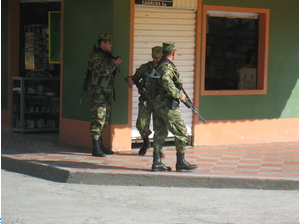Originally posted on HuffingtonPost.com. This post is the first of our Sri Lanka’s visit to the U.S. Series.
 In the context of Amnesty International’s global campaign to establish an international, independent investigation into alleged war crimes in Sri Lanka, we are currently closely following the US visit of Sri Lanka’s Foreign Minister, Professor G.L. Peiris.
In the context of Amnesty International’s global campaign to establish an international, independent investigation into alleged war crimes in Sri Lanka, we are currently closely following the US visit of Sri Lanka’s Foreign Minister, Professor G.L. Peiris.
Sri Lanka’s Foreign Minister, Professor G.L. Peiris, is currently on a public relations tour through the United States, touting his country as the new paradise for foreign investment, and dismissing war crimes allegations on the way. This week, he even took to the Huffington Post website to present his questionable worldview: “A Year After Defeating Terrorism, Sri Lanka Embodies Hope and Change“.
One year after Sri Lanka’s civil war came to a bloody end, the evidence that both parties to the conflict committed serious human rights violations, including war crimes, continues to pile up. Amnesty International, Human Rights Watch, the International Crisis Group and the US State Department have compiled extensive reports on the human rights violations that were committed by both the Sri Lankan army and the armed Tamil Tigers. To date, not one single individual has been held accountable for the crimes committed.
Consequently, Sri Lankan government officials have had difficulties hiding their self-confidence following their successful attempts (so far) to evade official international scrutiny. (This confidence is further boosted by articles such as a recent New York Times piece that declares Sri Lanka as the number one tourist destination to visit in 2010. The New York Times article is now part of the official information package that is handed out by Sri Lankan embassy staff at events where the Foreign Minister is speaking).
Push to lift Leahy law restrictions
This new self-confidence became most visible for me during a talk at the Center for Strategic and International Studies (CSIS), when Minister Peiris openly stated that one objective of his US visit is to change US policy that bars US training of the Sri Lankan military under the Leahy amendment. The Leahy amendment prohibits U.S. security assistance to foreign military or security units, which are believed to have committed gross human rights violations.
SEE THE REST OF THIS POST


 In the context of Amnesty International’s global campaign to establish an
In the context of Amnesty International’s global campaign to establish an